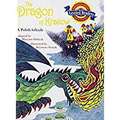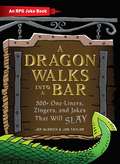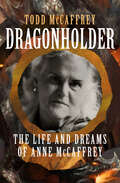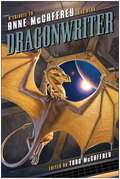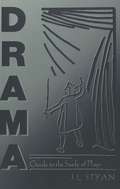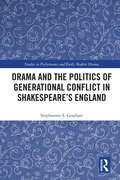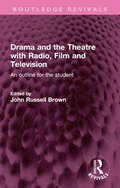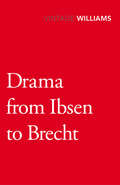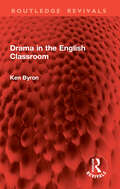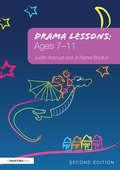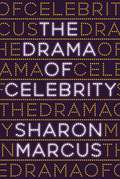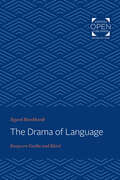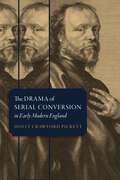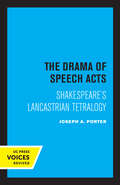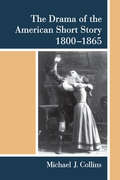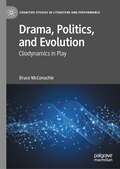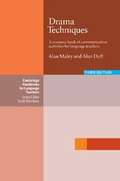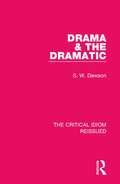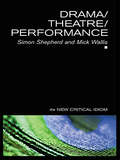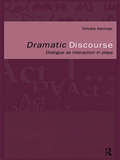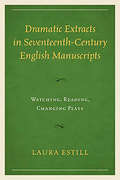- Table View
- List View
The Dragon of Krakow: A Polish folktale [Grade 3]
by Maryann Dobeck Krystyna StasiakNIMAC-sourced textbook
A Dragon Walks Into a Bar: An RPG Joke Book
by Jef Aldrich Jon TaylorThis hilarious collection of over 300 puns, one-liners, and classic jokes dedicated to the fun of RPGs is perfect for you share with your fellow gaming compatriots!Why don&’t dragons like to eat paladins? They taste lawful. Laugh out loud at over 300 zingy one-liners and eye-rolling puns with this collection of tabletop-based humor, dedicated to the fun of RPGs like Dungeons and Dragons, Pathfinder, and more! A Dragon Walks into a Bar gives you hours of funny content that will keep you smiling. Whether you use them as inspiration for your level 20 comedian bard to crack wise during battle or if you just want a giggle in between turns, this book has everything you&’ve been looking for.
Dragonholder: The Life and Dreams of Anne McCaffrey
by Todd McCaffreyAn enthralling biography of one of the most luminous shining stars of fantasy and science fiction, world builder and dragon master Anne McCaffrey, written by her son, collaborator, and most devoted fanWhile you&’ve been to Pern . . . you haven&’t heard the stories behind the stories. I propose to fix that. When Anne McCaffrey&’s Hugo Award–winning novella &“Weyr Search&” appeared in the late 1960s as part of the novel Dragonflight, the science fiction universe was gloriously transformed as readers first experienced the exhilarating thrill of soaring with dragons. With the many Pern novels that followed, McCaffrey steadily won the hearts and unwavering devotion of millions of fans, eventually earning a permanent position on the New York Times bestseller list. Dragonholder celebrates the birth and growth of McCaffrey&’s breathtaking literary vision, as well as the momentous events of a life that was in many ways as extraordinary as the worlds and characters that McCaffrey created. No one understands or appreciates McCaffrey&’s life and work better than her son, Todd, does. In Dragonholder, her frequent coauthor and avid fan intimately examines his mother&’s childhood and early adulthood, the amazing gift of second sight she inherited from her own mother and grandmother, the trials she faced juggling a career and a family during the turbulent sixties, and her rise to literary stardom—and he reveals the events and influences that ultimately gave rise to the myriad wonders of Pern and the other miraculous worlds borne of Anne McCaffrey&’s unparalleled imagination.
Dragonwriter: A Tribute to Anne McCaffrey and Pern
by David Brin Lois McMaster BujoldWhen Anne McCaffrey passed in November 2011, it was not only those closest to her who mourned her death; legions of readers also felt the loss deeply. The pioneering science fiction author behind the Dragonriders of Pern® series crafted intricate stories, enthralling worlds, and strong heroines that profoundly impacted the science fiction community and genre. In Dragonwriter, Anne's son and Pern writer Todd McCaffrey collects memories and stories about the beloved author, along with insights into her writing and legacy, from those who knew her best. Nebula Award–winner Elizabeth Moon relates the lessons she learned from Pern's Lessa (and from Lessa's creator); Hugo Award–winner David Brin recalls Anne's steadfast belief that the world to come will be better than the one before; legendary SFF artist Michael Whelan shares (and tells stories about) never-before-published Pern sketches from his archives; and more. Join Anne's co-writers, fellow science fiction authors, family, and friends in remembering her life, and exploring how her mind and pen shaped not only the Weyrs of Pern, but also the literary landscape as we know it. Contributors include: Angelina Adams David Brin David Gerrold John Goodwin Janis Ian Alec Johnson Georgeanne Kennedy Mercedes Lackey Sharon Lee and Steve Miller Lois McMaster Bujold Elizabeth Moon Charlotte Moore Robert Neilson Jody Lynn Nye and Bill Fawcett Robin Roberts Elizabeth Ann Scarborough Wen Spencer Michael Whelan Richard J. Woods Chelsea Quinn Yarbro
Drama: A Guide to the Study of Plays
by J. L. StyanThis book introduces the elements of drama and the principles behind the reading and study of plays--classical and modern. It makes a special point of seeing drama as intended for acting and performance, and it therefore emphasizes the role of the spectator at a play and the sort of theatre for which drama was written. The performance approach to the study of plays finally clarifies the different kinds of drama (comedy, tragedy, melodrama, and farce) and identifies its forms (realism, stylization, and symbolism). The book draws on specific examples of drama, is rich in helpful charts and diagrams, and contains a comprehensive glossary. This book will be a useful guide for students and general playgoers alike.
Drama and the Politics of Generational Conflict in Shakespeare's England (Studies in Performance and Early Modern Drama)
by Stephannie GearhartDrama and the Politics of Generational Conflict in Shakespeare’s England examines the intersection between art and culture and explains how ideas about age circulated in early modern England. Stephannie Gearhart illustrates how a variety of texts – including drama by Shakespeare, Jonson, and Middleton – placed elders’ and youths’ voices in dialogue with one another to construct the period’s ideology of age and shape elder-youth relations.
Drama and the Theatre with Radio, Film and Television: An outline for the student (Routledge Revivals)
by John Russell BrownFirst published in 1971, Drama and the Theatre with Radio, Film and Television is concerned with the nature of theatre as a subject for study and the ways of studying it. All its contributors have practical experience of staging plays for professional or student companies, or for both. Necessarily, attention is chiefly focused on the main elements of plays in performance in theatres, now and in the past. The chosen topics place more specialized studies in a wider context, because such a book as this needs, above all, to give an impression of general scope. It is intended for those aiming for a theatre career and for young students interested in theatre.
Drama From Ibsen To Brecht
by Raymond WilliamsWith typical critical flair, Raymond Williams examines the development of the dramatic form from Henrik Ibsen to Bertolt Brecht. Taking an expansive view of drama from around the world, he offers the reader profound insights into the role of theatre in society and into the workings of dramatic language. This is seminal reading for theatre-goers and literature students alike.
Drama in the English Classroom (Routledge Revivals)
by Ken ByronFirst published in 1986, Drama in the English Classroom demonstrates the contribution of drama in an English classroom. It suggests that drama activities, language work, and the reading of fiction can all enrich each other in ways which promote the aims of the English teacher.The author draws on his own classroom experience and on that of the teachers whom he guided (on long-term in-service work) through the process of learning to use drama effectively. He offers many examples to illustrate the opportunities and the problems of using drama in English. Planning, key drama strategies, major pitfalls, evaluation, and the rewards of drama are examined from the viewpoint of an English teacher who senses that drama has a great deal to offer in the classroom but is at first unsure of what and how. As major part of his book is presented in form of a teacher’s journal, we see the author trying things, reflecting on the result, talking to a more experienced colleague, and steadily finding out what drama can contribute and how he can achieve this in his teaching. This book is an encouraging and helpful guide for anyone who wishes to use drama effectively but is unsure of the first steps.
Drama Lessons: Ages 7-11
by Judith Ackroyd Jo Barter-BoultonDrama Lessons: Ages 7–11 offers an exciting and varied range of tried and tested lessons tailor-made for busy teachers. Drama Lessons: Ages 7–11 emerges from the continuing positive responses to Drama Lessons for Five to Eleven Year Olds (2001). In this book you will find a carefully chosen selection of the best lessons from the original book, plus some exciting new material – a combination of brand new and classic lessons. This new collection introduces Literacy Alerts which identify how the drama activities develop aspects of literacy and suggest additional literacy activities. For each lesson plan, essential resources and timing information are provided. The lessons cover a range of themes and curriculum areas. Full of pick-up-and-go lesson plans, this book will be of enormous interest to specialists and non-specialists of drama alike. All primary teachers, literacy coordinators and teaching assistants should have this book in their hands and it will give all trainee teachers a flying start in their school placements.
The Drama of Celebrity
by Sharon MarcusA bold new account of how celebrity worksWhy do so many people care so much about celebrities? Who decides who gets to be a star? What are the privileges and pleasures of fandom? Do celebrities ever deserve the outsized attention they receive?In this fascinating and deeply researched book, Sharon Marcus challenges everything you thought you knew about our obsession with fame. Icons are not merely famous for being famous; the media alone cannot make or break stars; fans are not simply passive dupes. Instead, journalists, the public, and celebrities themselves all compete, passionately and expertly, to shape the stories we tell about celebrities and fans. The result: a high-stakes drama as endless as it is unpredictable.Drawing on scrapbooks, personal diaries, and vintage fan mail, Marcus traces celebrity culture back to its nineteenth-century roots, when people the world over found themselves captivated by celebrity chefs, bad-boy poets, and actors such as the “divine” Sarah Bernhardt (1844–1923), as famous in her day as the Beatles in theirs. Known in her youth for sleeping in a coffin, hailed in maturity as a woman of genius, Bernhardt became a global superstar thanks to savvy engagement with her era’s most innovative media and technologies: the popular press, commercial photography, and speedy new forms of travel.Whether you love celebrity culture or hate it, The Drama of Celebrity will change how you think about one of the most important phenomena of modern times.
The Drama of Language: Essays on Goethe and Kleist
by Sigurd BurckhardtOriginally published in 1970. For Sigurd Burckhardt, literary interpretation began with the discovery of an "inconsistency" in a text. Minimizing the possibility that the writer has "unconsciously" fallen into an inconsistency in the use of material, the true interpreter, Burckhardt believes, abandons a tendency to "correct" the writer and seeks instead a new formulation by which the inconsistency can be seen as a part of a work's essential unity. "Whether I search for the meaning of a word or for the meaning of my life," he wrote, "I am looking for something under which I can subsume the otherwise unrelated and meaningless particular so as to place it in a larger order." That method, so characteristic of Burckhardt's criticism, underlies his studies of Goethe and Kleist and unifies the essays of this volume. Prior to his death in December 1966, Professor Burckhardt had considered the possibility of collecting his writings on Goethe and Kleist. One essay had never been published; others had appeared only in German or were available in scattered sources. The preparation of the essays for publication, a service of professors Bernhard Blume and Roy Harvey Pearce, makes possible this impressive demonstration of their late colleague's interest in German literature. The seven critical studies are introduced by an essay that makes explicit the concern for language implicit throughout the volume. Burckhardt proceeds by close adherence to the text and by analysis of its writer's use of language and structure. He interprets Goethe's Prometheus, Pandora, Iphigenie, Tasso, Die natürliche Tochter, and Egmont and Kleist's Prinz Friedrich von Homburg and Die Hermannsschlacht. He provides original and challenging interpretations, shaping each into a self-contained entity.
The Drama of Marriage
by John M. ClumIn studying performances of marriage in modern and contemporary British and American drama, Clum highlights the fact that - paradoxically - at a time when theatre was both popular entertainment and high culture, many of the most commercially and artistically successful plays about marriage were written by homosexual men. Beginning with Oscar Wilde and focusing on some of the most successful British and American playwrights of the past century, including Somerset Maugham, No#65533;l Coward, Terence Rattigan, and Emlyn Williams in England and Clyde Fitch, George Kelly, Tennessee Williams, William Inge, and Edward Albee in the US, The Drama of Marriagelooks at how the plays they wrote about heterosexual marriage continue to impact contemporary gay playwrights and the depiction of marriage today.
The Drama of Memory in Shakespeare’s History Plays
by Isabel KarremannThis book analyses the drama of memory in Shakespeare's history plays. Situating the plays in relation to the extra-dramatic contexts of early modern print culture, the Reformation and an emergent sense of nationhood, it examines the dramatic devices the theatre developed to engage with the memory crisis triggered by these historical developments. Against the established view that the theatre was a cultural site that served primarily to salvage memories, Isabel Karremann also considers the uses and functions of forgetting on the Shakespearean stage and in early modern culture. Drawing on recent developments in memory studies, new formalism and performance studies, the volume develops an innovative vocabulary and methodology for analysing Shakespeare's mnemonic dramaturgy in terms of the performance of memory that results in innovative readings of the English history plays. Karremann's book is of interest to researchers and upper-level students of Shakespeare studies, early modern drama and memory studies.
The Drama of Serial Conversion in Early Modern England
by Holly Crawford PickettIn The Drama of Serial Conversion in Early Modern England, Holly Crawford Pickett reconceptualizes early modern religious identity by exploring the astonishing stories of serial converts: historical figures such as William Alabaster, Kenelm Digby, William Chillingworth, and Marc Antonio De Dominis, along with fictional ones, who changed their religious affiliations between Catholicism and Protestantism multiple times. Pickett argues that serial converts both reveal and helped revise early modern understandings of the self. Through investigation of the techniques that serial converts used to stage and justify their conversions, Pickett demonstrates the performative nature of the act of conversion itself, offering a counternarrative to the paradigm of sincere, private conversion that was on the rise in the tumultuous years following the Reformation. Drawing from archival investigation into the lives and works of serial converts and performance studies theory, this book shows how the genres and conventions associated with conversion shaped not only forms of communication but also the very experience of conversion. By juxtaposing plays about serial conversion—by Thomas Dekker and Philip Massinger, Thomas Middleton, Elizabeth Cary, Ben Jonson, and William Shakespeare—with spiritual autobiographies, Pickett highlights the shared task of convert and playwright: performing conversion for an audience.Serial converts served as uncomfortable reminders to their contemporaries that religious identity is always unverifiable. The first study to explore serial conversion as a discrete phenomenon in this era, The Drama of Serial Conversion in Early Modern England challenges confessional divisions within much early modern historiography by analyzing the surprising convergence of Protestant and Catholic in the figure of the serial convert. It also reveals a neglected strain of religious discourse in early modern England that valued mutability and flexibility even in the midst of hardening and increasingly narrow understandings of conversion.
The Drama of Speech Acts: Shakespeare's Lancastrian Tetralogy
by Joseph A. PorterThis title is part of UC Press's Voices Revived program, which commemorates University of California Press’s mission to seek out and cultivate the brightest minds and give them voice, reach, and impact. Drawing on a backlist dating to 1893, Voices Revived makes high-quality, peer-reviewed scholarship accessible once again using print-on-demand technology. This title was originally published in 1979.
The Drama of the American Short Story, 1800-1865
by Michael J. CollinsThe Drama of the American Short Story, 1800-1865 argues that to truly understand the short story form, one must look at how it was shaped by the lively, chaotic, and deeply politicized world of 19th-century transatlantic theater and performance culture. By resurrecting long-neglected theatrical influences on representative works of short fiction, Michael J. Collins demonstrates that it was the unruly culture of the stage that first energized this most significant of American art forms. Whether it was Washington Irving's first job as theater critic, Melville's politically controversial love of British drama, Alcott's thwarted dreams of stage stardom, Poe and Lippard's dramatizations of peculiarly bloodthirsty fraternity hazings, or Hawthorne's fascination with automata, theater was a key imaginative site for the major pioneers of the American short story. The book shows how perspectives from theater studies, anthropology, and performance studies can enrich readings of the short-story form. Moving beyond arbitrary distinctions between performance and text, it suggests that this literature had a social life and was engaged with questions of circumatlantic and transnational culture. It suggests that the short story itself was never conceived as a nationalist literary form, but worked by mobilizing cosmopolitan connections and meanings. In so doing, the book resurrects a neglected history of American Federalism and its connections to British literary forms.
The Drama of the Assimilated Jew
by Lucienne KrohaGiorgio Bassani (1916-2000) was a Jewish Italian novelist, poet, essayist, editor, and intellectual. A cosmopolitan writer concerned with the problems of Jewish identity and history, Bassani was deeply affected by the persecution and deportation of Italian Jews under Mussolini. His personal experience of this period and its aftermath was fundamental to the creation of his masterwork, the Romanzo di Ferrara (Romance of Ferrara).In The Drama of the Assimilated Jew, Lucienne Kroha makes Bassani's personal and literary journey accessible to English-language readers. Kroha's close, intertextual reading of Bassani's novels and short stories reveals Bassani's focus on the issue of Jewish masculinity and his profound engagement with the work of Freud, Nietzsche, and Thomas Mann, whose ideas he appropriated and re-cast to construct the fictional story of his own personal struggle.
Drama, Politics, and Evolution: Cliodynamics in Play (Cognitive Studies in Literature and Performance)
by Bruce McConachieThis book outlines the evolution of our political nature over two million years and explores many of the rituals, plays, films, and other performances that gave voice and legitimacy to various political regimes in our species’ history. Our genetic and cultural evolution during the Pleistocene Epoch bestowed a wide range of predispositions on our species that continue to shape the politics we support and the performances we enjoy. The book’s case studies range from an initiation ritual in the Mbendjela tribe in the Congo to a 1947 drama by Bertolt Brecht and include a popular puppet play in Tokugawa Japan. A final section examines the gradual disintegration of social cohesion underlying the rise of polarized politics in the USA after 1965, as such films as The Godfather, Independence Day, The Dark Knight Rises, and Joker accelerated the nation’s slide toward authoritarian Trumpism.
Drama Techniques: A Resource Book of Communication Activities for Language Teachers
by Alan Maley Alan Duff Penny UrThe fully revised edition of this 'classic' helps teachers give their learners the tools they need to express themselves through a range of stimulating drama contexts. This completely revised edition of the classic title Drama Techniques provides: *150 ideas for interesting and productive fluency practice *a large selection of drama-based techniques which focus learners' attention on communicative tasks or activities *techniques suitable for all levels *clear instructions for the teacher *advice on how to use the techniques in the classroom
Drama & the Dramatic (The Critical Idiom Reissued #10)
by S. W. DawsonFirst published in 1970, this book explores drama as literature and provides critical overviews of different aspects of drama and the dramatic. It first asks what a play is, before going on to examine dramatic language, action and tension, dramatic irony, characters and drama’s relationship with modern criticism and the novel. This book will be a valuable resource to those studying drama and English literature.
Drama/Theatre/Performance (The New Critical Idiom)
by Simon Shepherd Mick WallisWhat is implied when we refer to the study of performing arts as 'drama', 'theatre' or 'performance'? Each term identifies a different tradition of thought and offers different possibilities to the student or practitioner. This book examines the history and use of the terms and investigates the different philosophies, politics, languages and institutions with which they are associated. Simon Shepherd and Mick Wallis: analyze attitudes to drama, theatre and performance at different historical junctures trace a range of political interventions into the field(s) explore and contextualise the institutionalisation of drama and theatre as university subjects, then the emergence of 'performance' as practice, theory and academic disciplines guide readers through major approaches to drama, theatre and performance, from theatre history, through theories of ritual or play, to the idea of performance as paradigm for a postmodern age discuss crucial terms such as action, alienation, catharsis, character, empathy, interculturalism, mimesis, presence or representation in a substantial 'keywords' section. Continually linking their analysis to wider cultural concerns, the authors here offer the most wide-ranging and authoritative guide available to a vibrant, fast-moving field and vigorous debates about its nature, purpose and place in the academy.
Dramatic Discourse: Dialogue as Interaction in Plays
by Vimala HermanWhilst poetry and fiction have been subjected to extensive linguistic analysis, drama has long remained a neglected field for detailed study. Vimala Herman argues that drama should be of particular interest to linguists because of its form, dialogue and subsequent translation into performance. The subsequent interaction that occurs on stage is a rich and fruitful source of analysis and can be studied by using discourse methods that linguists employ for real-life interaction. Shakespeare, Pinter, Osborne, Beckett, Chekhov, and Shaw are just some of the dramatists whose material is drawn upon. Each chapter contains a theoretical section in which major concepts of each framework are explained before the relevance of the framework to dramatic discourse is analyzed and explored using textual examples. This book will be of interest to undergraduates and postgraduates studying in the areas of literary linguistics and stylistics, or anyone specialising in the relationship between the text and performance.
Dramatic Extracts in Seventeenth-Century English Manuscripts: Watching, Reading, Changing Plays
by Laura EstillThroughout the seventeenth century, early modern play readers and playgoers copied dramatic extracts (selections from plays and masques) into their commonplace books, verse miscellanies, diaries, and songbooks. Dramatic Extracts in Seventeenth-Century English Manuscripts: Watching, Reading, Changing Plays is the first to examine these often overlooked texts, which reveal what early modern audiences and readers took, literally and figuratively, from plays. As this under-examined archival evidence shows, play readers and playgoers viewed plays as malleable and modular texts to be altered, appropriated, and, most importantly, used. These records provide information that is not available in other forms about the popularity and importance of early modern plays, the reasons plays appealed to their audiences, and the ideas in plays that most interested audiences. Tracing the course of dramatic extracting from the earliest stages in the 1590s, through the prolific manuscript circulation at the universities, to the closure and reopening of the theatres, Estill gathers these microhistories to create a comprehensive overview of seventeenth-century dramatic extracts and the culture of extracting from plays. Dramatic Extracts in Seventeenth-Century English Manuscripts: Watching, Reading, Changing Plays explores new archival evidence (from John Milton’s signature to unpublished university plays) while also analyzing the popularity of perennial favorites such as Shakespeare’s The Tempest. The study of dramatic extracts is the study of particulars: particular readers, particular manuscripts, particular plays or masques, particular historic moments. As D. F. McKenzie puts it, “different readers [bring] the text to life in different ways.” By providing careful analyses of these rich source texts, this book shows how active play-viewing and play-reading (that is, extracting) ultimately led to changing the plays themselves, both through selecting and manipulating the extracts and positioning the plays in new contexts. Published by University of Delaware Press. Distributed worldwide by Rutgers University Press.
